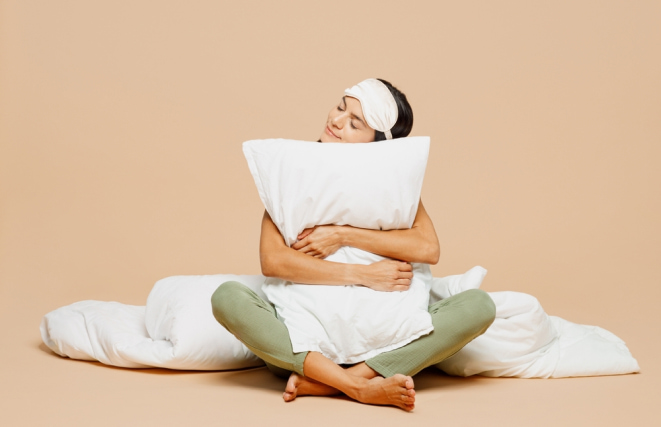Many individuals face sleep challenges, yet there are effective habits that could support good sleep. This article explores the critical role of quality sleep (NIH, 2022).
The importance of quality sleep
Sleep issues are prevalent in our non-stop society, affecting between 25 and 65% of children, adolescents, and adults. Difficulty falling asleep, staying asleep, or experiencing daytime drowsiness could impact health, safety, and performance (Lillehei, 2015).
Quality rest is essential for the body to recover the energy needed to navigate each day. Studies show that insufficient sleep could lead to daytime issues such as exhaustion, irritability, and difficulty focusing. Therefore, prioritizing effective strategies to optimize sleep quality is important for maintaining sharp reflexes and a focused better. (NIH, 2024).
Additionally, achieving restful sleep is vital for a good concentration. According to the National Institutes of Health (NIH), adequate sleep positively influences intellectual functions and helps you think more clearly. Quality rest also optimizes mood and reflexes (NIH, 2013).
Importance of sleep hygiene
Maintaining good sleep hygiene is important. Here are some tips to help you establish a good sleep routine:
Sleep during the night
A recent study reveals that recovering sleep is not a substitute for the hours of rest missed during the night. In reality, attempting to recover lost sleep could exacerbate some issues (NIH, 2024).
Create a relaxing bedtime routine
Typical strategies for getting a good rest include relaxation and breathing exercises. (NIH, 2013). However, it’s important to consult a doctor before using any over-the-counter sleep aids.
Limit exposure to screens before bed
Using phones, tablets, and computers close to bedtime could interfere with your sleep. Try to avoid using these devices at least an hour before bedtime. Instead, engage in calming activities that don’t involve screens (Sleep Foundation, 2024).
Talk with someone
If you frequently experience sleep issues, you could consult your health care provider. They could ask you to maintain a sleep diary to monitor your sleep patterns over several weeks. Additionally, they could conduct tests, including sleep studies, to identify any sleep disorders. Any trouble sleeping could be temporary, with individuals having difficulty sleeping for a few weeks or months. However, these issues could persist for three months or more (NIH, 2021).
Avoid caffeine and heavy meals before bed
Consuming caffeine close to bedtime could disrupt your sleep. Try to avoid caffeine in the late afternoon and evening, and opt for a light snack if you’re hungry before bed (Sleep Foundation, 2024).
Putting it all together
Finding the right combination of sleep aids and good sleep hygiene practices could significantly impact your sleep quality. Additionally, maintaining a consistent sleep schedule and following healthy bedtime routines could help ensure that you get the restorative sleep your body and mind need.
Remember, small changes could make a big difference. Start by trying one or two of these suggestions and see how they impact your sleep. With patience and persistence, you could achieve good sleep and wake up feeling refreshed and ready to tackle the day.
Sources:
Abbasi, B., Kimiagar, M., Sadeghniiat, K., Shirazi, M. M., Hedayati, M., & Rashidkhani, B. (2012). The effect of magnesium supplementation on primary insomnia in elderly: A double-blind placebo-controlled clinical trial. Journal of Research in Medical Sciences: The Official Journal of Isfahan University of Medical Sciences, 17(12), 1161–1169. https://www.ncbi.nlm.nih.gov/pmc/articles/PMC3703169/
Pacheco, D., & Cotliar, D. (2021, January 22). Caffeine & sleep problems. Sleep Foundation. https://www.sleepfoundation.org/nutrition/caffeine-and-sleep
Making Up Sleep May Not Help. (2019, May 1). NIH News in Health. https://newsinhealth.nih.gov/2019/05/making-up-sleep-may-not-help
National Heart, Lung, and Blood Institute. (2022, March 24). What Are Sleep Deprivation and Deficiency? National Heart, Lung, and Blood Institute. https://www.nhlbi.nih.gov/health/sleep-deprivation
National Institute of Health. (2018, April 4). The benefits of slumber. NIH News in Health; U.S. Department of Health and Human Services. https://newsinhealth.nih.gov/2013/04/benefits-slumber
Newsom, R., & Singh, A. (2020). How blue light affects sleep. Sleep Foundation. https://www.sleepfoundation.org/bedroom-environment/blue-light
